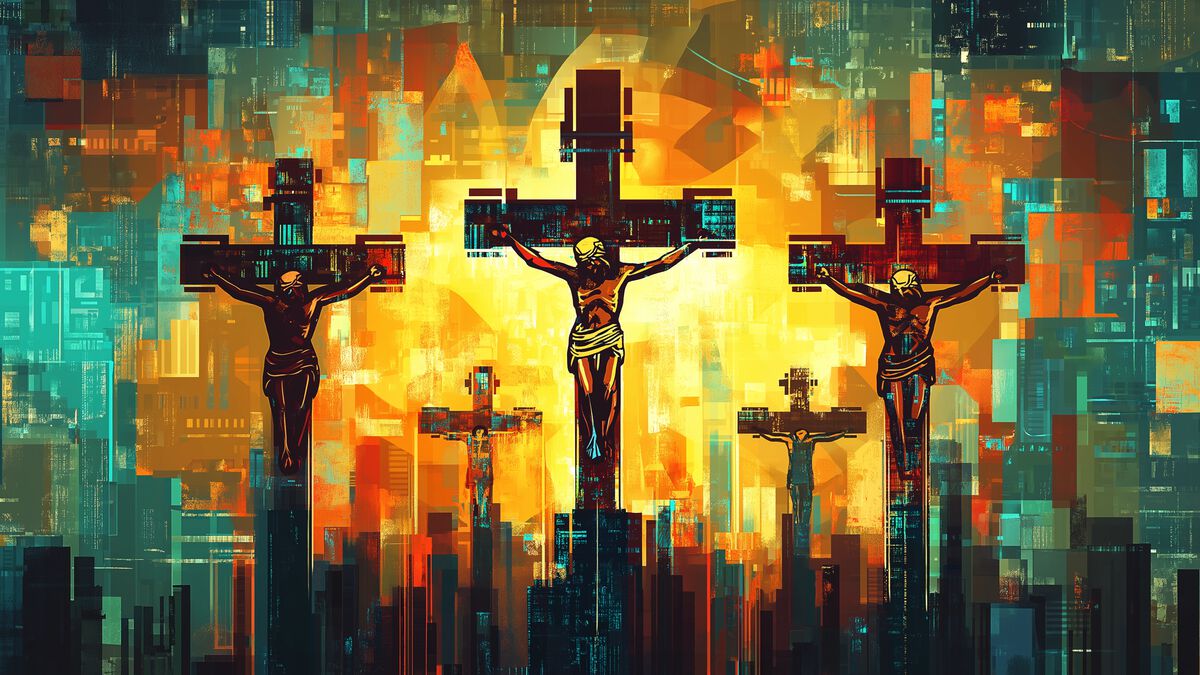The Work of Immortality is Not Complete
Lincoln Cannon
5 August 2007 (updated 3 January 2026)
Bill Muehlenberg, in his Culture Watch blog, recently wrote about “The First Church of Transhumanism.” After providing a summary of his perspective on Transhumanism, he writes the following:
“The truth is, life extension is already a current reality. Indeed, we will all live forever. But there are just two destinies after the grave, and only one of those we should be striving for. The means to eternal life was accomplished by Jesus Christ 2000 years ago. He is the only one who makes a way for us to enjoy an eternal relationship with a loving, heavenly father. Reject that provision, and we instead face an eternal destiny separated from God, and all his love and goodness.
“The choice is ours, and there are no other means to obtain this glorious eternal life. Indeed, two attempts recorded early in Scripture met with failure and were roundly condemned. When our first parents fell, the fell by listening to the lie of the enemy: ‘you will not die, you will become like God.’
“And at the tower of Babel, mankind sought to reach to the heavens, also seeking immortality and a divine status. The biblical record makes it clear how God feels about such man-made attempts to become divine and achieve immortality.
“Thus transhumanism is really not so new after all, but simply a recent variation of a very old, and a very mistaken, humanist attempt to kick God out of his heaven and take his place. But such attempts will always fail. There is only one God in this universe, and we are not it. And genuine life extension is only possible on his terms, not ours.
Despite identifying as a Christian, I disagree with Muehlenberg’s claim that “life extension is already a current reality.” The current reality, in fact, is that humans are suffering and dying. The current reality is that my father, who died of cancer nine years ago at age 48, is part of my life only in spirit. The current reality is that almost all of us know and love someone that is dead or dying – not to mention that, given current limitations, we are all headed to the grave.
Whether or not there are remote worlds full of immortals, life extension simply is not a current reality for us.
Many Christians, including many Mormons, today believe dogmatically that the resurrection of Jesus is the only and final act necessary to attain human immortality. The trouble with this dogma is that it overlooks work that is obviously not yet completed: the act of transfiguring mortal humans to immortality, and the act of resurrecting dead humans to immortality.
The resurrection of Jesus, as described in the Bible, does not purport to be the universal resurrection. Our dead loved ones are yet to rise from the graves. We are not yet immortal. Given that the resurrection of Jesus cannot rationally be understood as the only or final act necessary to attain human immortality, we look forward to transfiguration and resurrection.
We may also ask ourselves, how will such wondrous prophecies be fulfilled? And we can answer in at least two ways. On the one hand, we may answer that human immortality will be attained without any effort on our part. On the other hand, we may answer that human immortality will be attained only subsequent to effort on our part. In other words, we are faced with the age-old question: will we attain salvation through grace or works?
The answer from the Bible, particularly as interpreted from a Mormon perspective, seems clear. We attain salvation through BOTH grace and works (James 2). God provides us the opportunity. And we participate, according to our varying abilities, in realizing the opportunity.
The preaching of the gospel illustrates this. According to Mormon tradition, everyone will have an opportunity to learn the gospel of Christ. However, this does not happen instantaneously.
Instead, we are called to the work of sharing the gospel. According to the grace of God, we have the opportunity to share. According to our efforts, the work is accomplished. Thus, spiritual salvation is attained through a combination of grace and works.
Likewise, according to Mormon tradition, everyone will be transfigured or resurrected to immortality. However, why should we assume that this is merely a matter of grace? Why should we not assume that work will be required to realize the opportunity?
From a practical perspective, if we desire immortality and do not know infallibly whether our work can make a difference in attaining it, it seems we should work toward immortality. If it turns out that our work makes no difference then through action we lose only the time of the effort. If it turns out that our work makes a difference then through inaction we increase unnecessary suffering and death.
Some may argue, as does Muehlenberg in his blog, that we have more to lose through action: that action is disrespectful toward God. In response to this, I appeal to two sorts of Gods described in the Bible. One sort of God would raise itself above all else that is called God, declaring itself God (2 Thessalonians 2). The other sort of God would raise us together as joint heirs in God, declaring us one in God (Romans 8).
I acknowledge that the first sort of God would be offended by our efforts to pursue immortality. However, that God, in my estimation, is not worthy of our worship. The God worthy of worship is the second sort, who considers us his children and friends.
As children and friends of God, we are called, with Paul, to fill up that which is behind of the afflictions of Christ (Colossians 1). We are called to have Christ in us, and to be the saviors of men (Doctrine and Covenants 103). So far as I am concerned, this is a calling to work toward human immortality.



